 From the Director
From the Director
Welcome to the August 2022 edition of the ADNeT newsletter.
In this issue:
· Participants needed for landmark brain study
· The world first Old People’s Home for Teenagers program explores the impact of intergenerational interaction on older adult health
· Participants needed to help trial LIV app
· The University of the Sunshine Cost seeks participants for new dementia study
· Updates on grant opportunities
· Upcoming webinars and catch-up viewing
I hope you enjoy this month’s newsletter.
Chris
News
Participants needed for landmark brain study
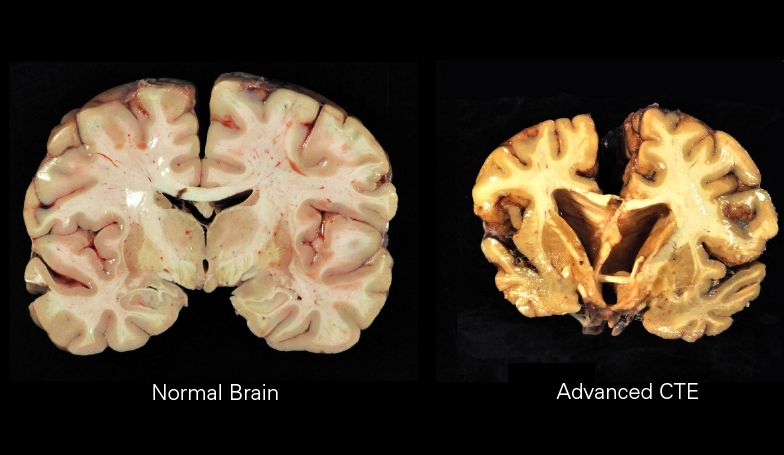
The ABC’s 7:30 Report interviewed ADNeT Director Professor Chris Rowe on a landmark study that hopes to lead to a diagnostic scan or blood test for chronic traumatic encephalopathy (CTE). CTE is a progressive brain disease associated with repeated traumatic brain injuries, as often occurs in sport, particularly in AFL. In data obtained by The Age, concussions were the most common injury requiring hospitalisation in the AFL, with 655 concussions in 2018/2019 (the last full year of sport before coronavirus lockdowns).
Symptoms associated with CTE include; memory and cognition problems; confusion; personality changes; erratic behaviour such as aggression, depression and suicidal thinking and progression to dementia.
There is no test for CTE apart from post mortem brain examination that shows clumps of a protein called tau. Professor Rowe is investigating whether tau brain scans using a technique called PET (positron emission tomography) or ultrasensitive measures of tau in the blood can help diagnose CTE in living persons. A test for CTE is a vital first step in understanding the disease and for the development of treatment. The study was funded by the Australian government through the National Health and Medical Research Council (NHMRC).
Unfortunately access to former AFL players with a history of multiple concussions through the AFL has proven very difficult.
Professor Rowe is hoping that a direct appeal to former AFL players and other athletes with multiple concussions will be more effective.
If you know of someone who received multiple concussions from sport and has developed memory and thinking problems in later life, please let them know about this study. More information can be obtained by contacting Dr. Natasha Krishnadas on Prof Rowe’s team by email natasha.krishnadas@austin.org.au.
You can watch the 7:30 report here from the 15.23 mark or read more here.
Old People’s Home for Teenagers: how intergenerational programs can improve health and happiness in older communities
 In a global first, the television program Old People’s Home for Teenagers brings older adults together with teenagers for a compelling intergenerational experiment to see if the relationships they build can help with overall health and happiness and dispel loneliness and generational stereotypes.
In a global first, the television program Old People’s Home for Teenagers brings older adults together with teenagers for a compelling intergenerational experiment to see if the relationships they build can help with overall health and happiness and dispel loneliness and generational stereotypes.
The Australian Dementia Network Clinical Quality Registry Lead, Dr. Stephanie Ward, features as the show’s expert geriatrician and says there are advantages to addressing loneliness and health as an early intervention for elderly people still living in the community. Research suggests that early intervention can make a tangible impact on slowing the development and progression of dementias and cognitive impairments. An estimated 500,000 Australians live with dementia, and it is the second leading cause of death and the single greatest cause of disability in Australians aged 65 and over.
ADNeT, in partnership with 17 research institutions, strives to use growing data, research and clinical trials to advance dementia diagnosis, treatment and quality of care for Australians living with dementia or mild cognitive impairment and their carers. If you or anyone you know is experiencing symptoms of mild cognitive impairment or memory loss, you can find more information on the ADNeT website.
Old People’s Home for Teenagers is currently airing on ABC TV and ABC iview.
Participants needed to help trial LIV app
 Would you like to help trial the LIV app? The Liv app aims to be an easy-to-use tool that may assist carers and people living with dementia to live independently in their own homes for longer.
Would you like to help trial the LIV app? The Liv app aims to be an easy-to-use tool that may assist carers and people living with dementia to live independently in their own homes for longer.
The CSIRO are looking for carers or people living with dementia who would like to use the LIV app regularly for a period of three months.
Mobile devices (smart phones, tablets) and computer technologies can help to foster independent living and a sense of connectedness with others, from family and friends through to community services. Increasing connectedness improves mental and physical health, and provides opportunities to obtain assistance with everyday tasks of dementia care giving.
As well as assisting people live independently for longer, the LIV app aims to improve connection with others including community services, and help gain a better understanding of dementia. The Liv app will also provide a forum for interested people to share their experiences with dementia to provide further support and hopefully reduce the stigma of dementia. To participate, you will need to;
· be a carer, or a person living with dementia
· have access to a mobile device
· be willing to attend an information session, use the app for a 3 month period, complete some brief surveys on your experiences of the app
· be able to understand English
· have unimpaired hearing and vision
You may also be invited to join a focus group. If you do not wish to attend the focus group, you can just complete the surveys.
You will receive a gift voucher of $25.00 after completing the first survey. You will receive another gift voucher of $50.00 on completing the final survey.
If you are interested in participating, please call Dana Bradford on 07 3327 4404 or email Dana.Bradford@csiro.au
This study has been approved by the CSIRO Human Research Ethics Committee (2020_044_HREC). If you would like to speak with someone with respect to ethical matters or wish to register a formal complaint about the conduct of this research, please contact the Secretary of the Committee via email at chmhrec@csiro.au
Gardening for Good: Participants needed for new dementia study
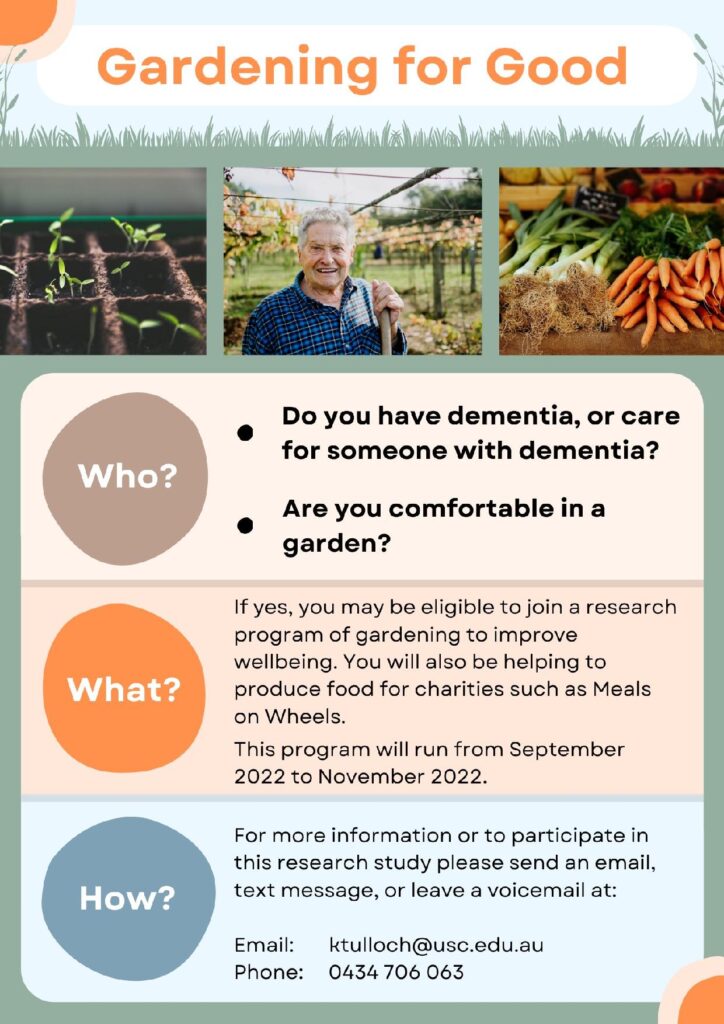 The University of the Sunshine Coast researchers are looking for adults for a dementia study. Many people living with dementia are excluded from social and community activities, especially those that foster a sense of contribution. This study aims to find out more about the benefits of community gardening for people living with dementia.
The University of the Sunshine Coast researchers are looking for adults for a dementia study. Many people living with dementia are excluded from social and community activities, especially those that foster a sense of contribution. This study aims to find out more about the benefits of community gardening for people living with dementia.
Selected participants will participate in a 7-week gardening program at Millen Farm in Samford, QLD Australia to complete a range of gardening activities including planting, watering, weeding between September and November this year, and to complete research tasks including surveys and interviews.
Participants must have reasonably good mobility as the site is a working farm.
If you would like any additional information, please feel free to contact the project lead Dr Kris Tulloch on ktulloch@usc.edu.au or 0434 706 063.
UPDATES
Grants for early to mid-career researchers

Are you an early to mid-career (EMCR) dementia researcher looking for grant opportunities, but not sure where to start? The ADNeT EMCR Accelerator group has put together a list of both dementia-specific and general EMCR grant opportunities. The list will be updated regularly with dates and status of application rounds.
If you know of any other relevant grant opportunities, please do not hesitate to contact either Ayeisha Milligan Armstrong (ayeisha.milligan@postgrad.curtin.edu.au) or Dr Julien Bensalem (julien.bensalem@sahmri.com).
Australian Dementia Research Forum 2023
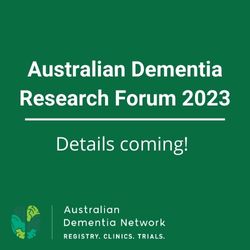 Planning for the next Annual Australian Dementia Research Forum 2023 is moving ahead with pace. Stay tuned for further details and exciting announcements coming soon!
Planning for the next Annual Australian Dementia Research Forum 2023 is moving ahead with pace. Stay tuned for further details and exciting announcements coming soon!
WEBINARS
Enabling Conversation and Connection: Can a speech pathologist help?
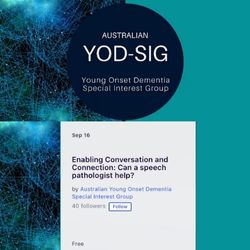 Join the Young Onset Dementia-Special Interest Group (YOD-SIG) for a webinar presentation from experienced speech pathologists, where we explore the importance of talking about communication in young onset dementia and showcasing a range of evidence-based strategies and therapy options that can help enable conversation and connection.
Join the Young Onset Dementia-Special Interest Group (YOD-SIG) for a webinar presentation from experienced speech pathologists, where we explore the importance of talking about communication in young onset dementia and showcasing a range of evidence-based strategies and therapy options that can help enable conversation and connection.
The presentation will be of interest to people living with young onset dementia and their care partners, as well as health professionals and dementia researchers.
We hope this sparks a conversation regarding the role of allied health in dementia care and the need to improve access to proactive services that prioritise quality of life and social participation.
When: Fri., 16 September 2022
12:00 pm – 1:00 pm AEST (ONLINE)
Find out more and register here
CATCH-UP VIEWING
Interventions Addressing the Behavioural and Psychological Symptoms of Dementia
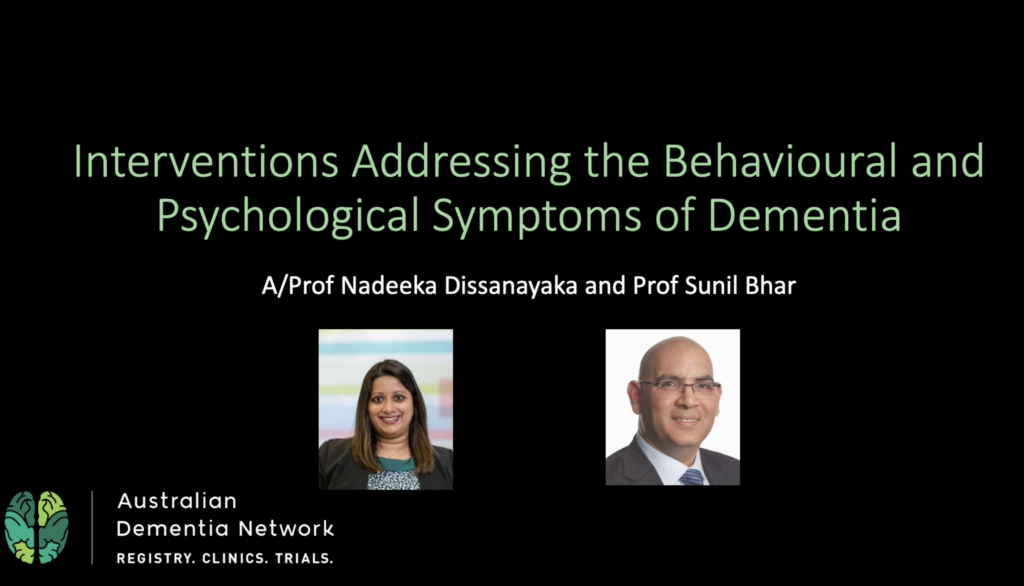 A/Professor Nadeeka Dissanayaka presents a range of technology assisted interventions developed and trialled to reduce behavioural and psychological symptoms in dementia. Examples of technological innovations include virtual reality, telehealth, and smart assistance technologies to augment outcomes from therapies and home-base care.
A/Professor Nadeeka Dissanayaka presents a range of technology assisted interventions developed and trialled to reduce behavioural and psychological symptoms in dementia. Examples of technological innovations include virtual reality, telehealth, and smart assistance technologies to augment outcomes from therapies and home-base care.
Professor Sunil Bhar’s presentation focuses on a recent cluster randomised controlled trial and shares results demonstrating that compared to usual care, anxiety reduced to a greater extent in the treatment condition, suggesting that CBT strategies are effective for reducing anxiety in residents with dementia.
Follow us on social media
 Don’t wait for our monthly newsletter to keep up with ADNeT! Follow us on Titter, on Facebook and LinkedIn. You can also watch some great webinars and presentations by subscribing to our YouTube channel.
Don’t wait for our monthly newsletter to keep up with ADNeT! Follow us on Titter, on Facebook and LinkedIn. You can also watch some great webinars and presentations by subscribing to our YouTube channel.
If you’d like to get updates on the Australian Dementia Research Forum 2023 you can follow the Twitter and Facebook pages!
If you’re not a subscriber to our newsletter, you can sign up here.
See you online!